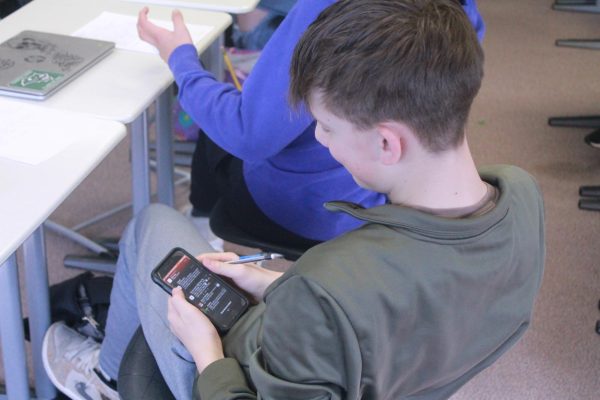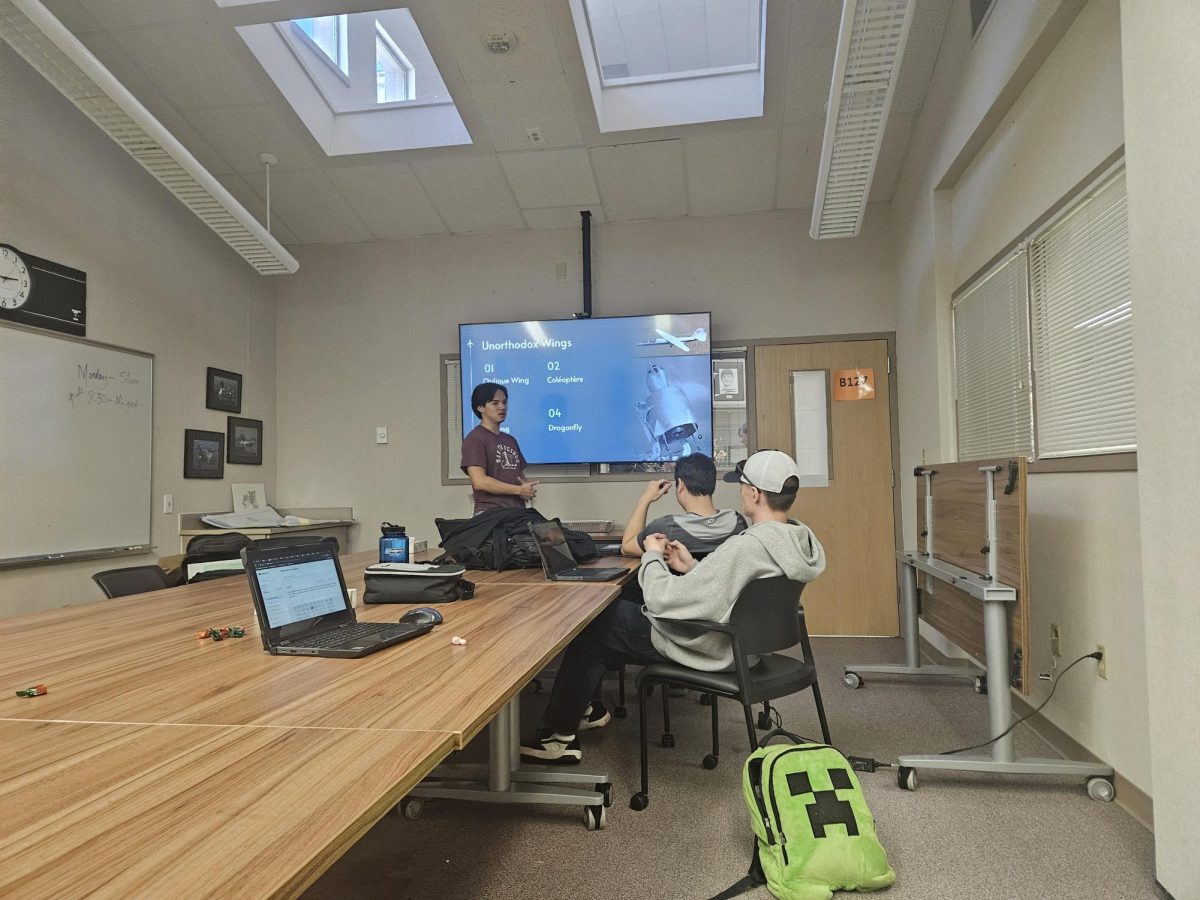Mental health is affected by multiple factors in people’s lives, whether small or big, one of those being social media and phone usage. Students are often seen with phones throughout the school day, whether talking with friends, sitting, or walking around, there is often a phone in hand.
“My brain was telling me that I was having social interactions because I was watching humans on the screen, but in reality it was basically just making me more and more addicted to dopamine that I could only get from my phone,” sophomore Lily Hardwood said.
Social media rewards the brain by releasing a feel-good chemical, dopamine, it gives delight, satisfaction, and motivation. Dopamine is often activated by food, social interactions, and anything that gives someone joy.
To prevent students from being on social media or their phones in class, Principal Gregory Manier created a new cell phone policy this year. The policy states that if teachers see a phone out, they warn the student to put it away, and if they see it again they will take it. If they take it, then the student can either get it at the end of class or must pick it up at the end of the day from the office.
“Teachers recognize that the kids are paying more attention or engaging, that kind of stuff,” Manier said.
When people remove a distraction, like phones, people can gain more attention because there is nothing to distract people from paying attention. Social media platforms are made to be addictive, with the dopamine produced by them, replacing the social element of life.
“The effect of social media can be good, it allows people to interact with friends and other people,” sophomore Judah Kramer said.
With Snapchat and other messaging platforms, it allows people to communicate more, even when they tend to be further away from each other.
“What people put on social media is always glorious. I’m always happy. It’s always the best time of their lives and in most cases, they don’t ever put the crappy stuff that’s going on in our lives. So I feel that students have a false sense of reality and essence,” counselor Carrie Vanni said.
Social media often shows off the good things in life, leaving out the bad things. The screen is one of the ways to show what the people are missing out on. The good things can be vacations, everyday activities, or beauty and looks.

“I think that social media can have a really negative effect on mental health because people often think that what they’re seeing is an accurate representation of another person’s life when in reality it is just the highlight of their best days,” Hardwood said.
This mindset can lead people to think that their life is not enough and that they should have or want to have a perfect life just like the person on the screen. The cause of this can be negative, leading to stress, anxiety, and self-doubt, because they don’t look like the people on the screen, raising beauty expectations and stress. Stress can also be caused by the amount of likes or attention gained from a post.
“The cause can be negative because of what other people are saying or what you are thinking about yourself when you’re looking specifically at what they want, because it sets an agenda for use,” Kramer said.
People want the people to like what they see but if they don’t then it makes that person feel bad or makes them feel like they aren’t good enough.
“I feel like they always need instant gratification of the post. They would be like ‘How many people liked it’, which I think is huge because if no one likes it, then they feel bad about themselves, it’s just a vicious cycle,” Vanni said.


















